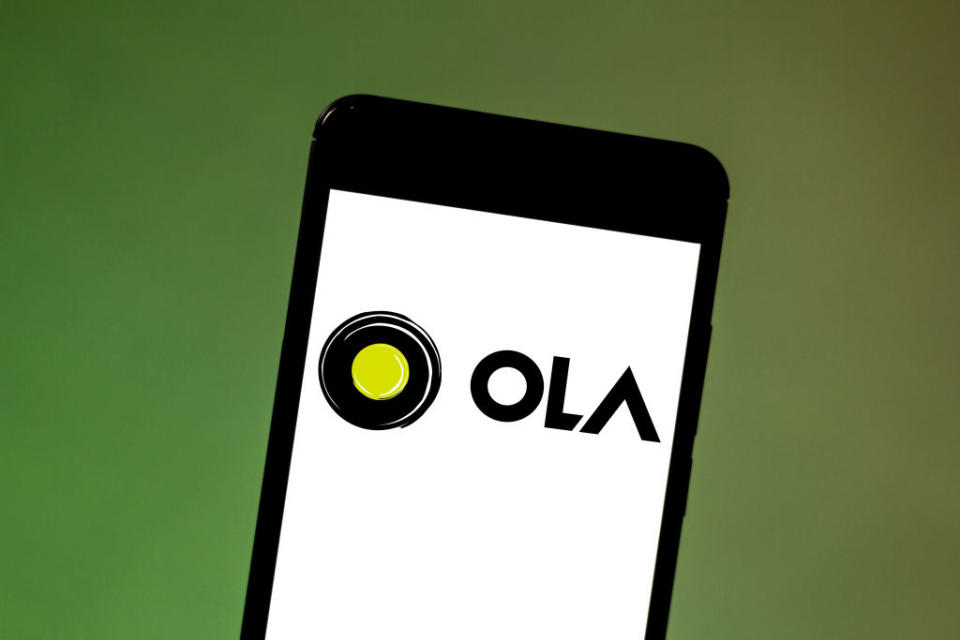How Ola ‘found its mojo’ after Covid-19 setbacks

The coronavirus crisis saw Uber lay off around 3,500 staff members, but the second-most popular rideshare service in Australia, Ola, had a different pandemic experience, chief executive Simon Smith told Yahoo Finance.
“We took the opportunity to find our startup mojo again,” Smith said.
“We've worked hard to train our drivers, so now all of our drivers are Covid-19 trained, so they know how to ensure their own safety and our customer safety.
“They all carry sanitise hand sanitiser, the cars are regularly cleaned, air conditioning should be off and the windows open, and we banned riders from sitting in the front seat.”
The rideshare service also launched a new category called “Ola Pro”, which allows customers to opt-in to have a screen between them and the drivers.
Ola even pivoted to parcel delivery, and introduced a tipping feature.
And Smith credits Ola’s streamlined business model to being able to respond to the pandemic and implement necessary travel changes quickly and effectively.
“We are very proud to remain close to our startup roots,” he said.
“And although we are a very big business in India and in Australia - we're a strong number two player with stro- we still are very focused on ensuring that we run a kind of cost effective and streamlined business, at the same time providing an excellent service to our customers and a great living to our drivers.”
Pandemic hit the sharing economy hard
But the chief executive admitted the company didn’t escape unscathed.
“We were certainly hit very hard from the lockdown,” he said.
“We had seen bookings reduce before lockdown, so customers were obviously making their own decisions and deciding to travel around a little less, but obviously once the lockdown was in place riders reduced significantly.”
And they weren’t the only ones: the head of Uber’s customer service office, Ruffin Chaveleau announced thousands of redundancies after the business saw rides reduce by more than half.
“There is not enough work for many frontline customer support employees. [As a result] we are eliminating 3,500 frontline customer support roles,” she said.
The company also revealed a near US$3 billion net loss in May, with CEO Dara Khosrowshahi forgoing his salary for the rest of the year as a result.
Airbnb also succumbed to the pandemic, with CEO and co-founder Brian Chesky forced to let go nearly 1,900 staff members.
However, Ola is expecting a V-shaped recovery.
“Ever since the restrictions started to ease, we’ve seen rides roaring back across all of our cities, and we’re almost back at the pre-Covid level. And we’re confident we’ll get back above it.”
And while Uber might be trialling helicopters, Ola is staying focused on its rideshare business.
“In India, we are very big player in electric vehicles, and obviously that's something we're watching carefully from here,” Smith said.
“But at the moment would, you know, we think there's more than enough opportunity for us to grow market share in rideshare and also to grow the overall market size.”
Fringe benefits tax exemption extended
One thing that might boost Ola’s road to recovery is the government’s extension of the fringe benefit tax exemption (FBT) for taxi travel to include rideshare.
The new exemption extension means businesses can pay for an employee’s rideshare travel without being subject to the FBT.
“FBT can almost double the price of some services when it applies, so it’s good news. It also means employees,” Smith said.
“And obviously it hugely simplifies arrangements for employers and make it easier for them to have one simple policy that says, ‘when you're travelling from A to B on expenses, you can take an Ola rather than having to take a taxi’,” he said.
Are you a millennial or Gen Z-er interested in joining a community where you can learn how to take control of your money? Join us at The Broke Millennials Club on Facebook!

 Yahoo Finance
Yahoo Finance 
